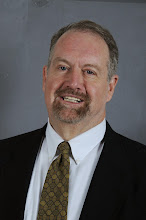Lane Francis Worrall
The trend towards web series adaptations of literature is a recent one. Most of these production have web series juggernaut The Lizzie Bennet Diaries to thank for inspiring them, and Nothing Much To Do is no exception.
The series translates William Shakespeare’s Much Ado About Nothing into the modern age, transporting Shakspeare’s beloved characters to the fictional Messina High School in New Zealand. Classic would-be couple Beatrice and Benedick are YouTube vloggers who share (highly subjective) accounts of their lives on their separate channels. They are assisted by friends Hero and Claudio, who take time out of their own relationship to scheme to bring Bea and Ben together. A third channel is operated by Ursula (who has been promoted from maid to friend), and features contributions from various members of the Nothing Much To Do cast. As now seems to be the trend with literary web series, there are several accompanying transmedia elements: Beatrice’s twitter, Ursula’s tumblr, and Hero’s instagram.
The updating of the supporting characters for a modern audience has seen some clever choices. Hero’s protective father Leonato becomes her older brother Leo. The Prince, Don Pedro, becomes Student Leader Pedro Donaldson, and his singing attendant Balthasar becomes, well, his musical friend Balthasar.
Much of the enjoyment of Nothing Much To Do comes from the believability that the creators and cast have managed to imbue into the characters. Both creators and characters are part of the tumblr generation – a group that seems to be half-fandom and half-social justice. This certainly contributes to the realistic nature of the series; the characters are Whovians, they are Beyoncé fans, they have frank discussions about slut-shaming. In an early episode, a character suggests Beatrice not criticise others simply because their behaviour “doesn’t conform to your [her] idea of societal norms.”
The series also appears to recognise the need for greater diversity and representation in web series, as in all mediums. Hero and Leo’s parents are established to be two women, and, if the not-so-subtle subtext is to be believed, there is the possibility for a relationship between two of the male leads. What is almost as encouraging is the open dialogue the creative team began about this potential relationship, especially when numerous television shows are still (rightly) accused of “queer baiting” their fans without any intention to portray canon LGBTQ+ relationships. That the creators are aware of these issues demonstrates a thorough understanding of their audience, and implies that similar considerations went into their adaptation process.

However, the key to this series is the willingness, and in fact eagerness, of the creative team to question the original source material. Nothing Much To Do is an adaptation, but it is not concerned with simply progressing through Shakespeare’s play and hitting each story beat. Instead, the creators recognise that what was acceptable in Shakespeare’s day is less so 400 years later, while still including references to many of the play’s most famous lines.
This balance was demonstrated clearly in the most recent episode, when Beatrice was given agency to act on her own behalf rather than delegating to Benedick because her desired retribution against Claudio was not considered to be appropriate for a woman.
Interestingly, the entire series was filmed before any of the episodes were released. This means, unlike many major productions, the creators of Nothing Much To Do now have little opportunity to amend or change the development of the plot and characters; there is only so much magic that can be worked in the editing room or through an additional Q&A video.
If something is poorly received by their audience, Nothing Much To Do will be unable to retcon the events in the same way The Lizzie Bennet Diaries responded to critiques of slut-shaming by altering future episodes.
As the series approaches its conclusion, this becomes more relevant. The major story beats left to hit are the most outlandish – beware 400 year old spoilers here – there is Hero’s faked death, Benedick’s challenging of Claudio to a duel (although in this adaptation, that could very well be Beatrice’s challenge), and the infamous ‘show your remorse for killing my daughter by marrying her identical cousin instead’ wedding (hey, it’s Shakespeare). Yet if Nothing Much To Do continues in the way it has begun, there is no reason to doubt the adaptation decisions going forward.

Is Shakespeare the new Austen?
There are other, similarly under-appreciated series, that have achieved similarly applaudable products using the works of Shakespeare. Jules & Monty imagines Romeo and Juliet as college students whose loyalties belong to different frat houses that are engaged in a bitter feud. It is succinct, honest, and features an ending that is in many ways more tragic than what Shakespeare imagined.Blank Verse is another Shakespearean series, that tries something new by avoiding the vlogging format while depicting Shakespeare and his contemporaries as modern day creative writing students.
What these series all have in common, outside of their Shakespearean connection, is that they offer something new to the world of literary web series.
Jules & Monty and Nothing Much To Do utilise multiple primary vlogs to show opposing perspectives, while Blank Verse uses a single camera setup and is more concerned with crafting a new plot than adapting an existing one. These creators are not content using someone else’s format, they have developed their own; we can only hope that they will inspire more web series creators, in the same way that The Lizzie Bennet Diaries inspired them.
Nothing Much To Do was created by The Candle Wasters. There is no set schedule, however new episodes generally premiere on Beatrice’s channel each Wednesday, with supplementary material appearing in between on the additional two channels.

